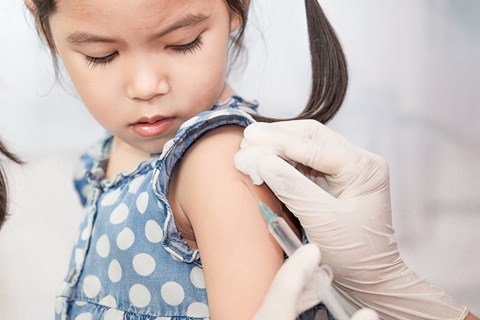Parenting disputes about vaccinations

Whether or not to vaccinate a child is becoming an increasingly contentious area as more parents become vocally opposed to vaccinations. This is certainly the case for separated families where one parent opposes vaccination of their children and the other parent seeks it.
Whether or not to vaccinate a child is a contentious area as more parents become vocally opposed to vaccinations. This is certainly the case for separated families where one parent opposes vaccination of their children and the other parent seeks it. Parenting disputes about vaccinations have especially become more common in light of the COVID-19 pandemic.
How the Courts deal with vaccinations
The question of whether to vaccinate a child is one of “parental responsibility” because it is considered a long-term issue for a child. Long-term issues include education, health, religion, the child’s name, living arrangements that affect the time spent with the other parent, etc.
A Court can order that one party have sole parental responsibility (that is, sole decision-making power about a child’s long-term issues) or an order providing for joint decision-making (which requires both parties to consult with each other and make a genuine effort to come to a joint decision about the long-term issue). The Court has the power to allocate parental responsibility based on what is in the child’s best interests and the particular circumstances of the case.
If the parents cannot agree on whether a child is to be vaccinated and one party does not have sole parental responsibility, then the Court will decide based on the child’s best interests.
The Court tends to order that a child be immunised in accordance with the National Immunisation Program Schedule in the absence of any specific scientific medical evidence that a particular vaccine is detrimental to a particular child’s health.
This position is further strengthened where states across Australia introduced “No Jab, No Play” laws.
Children cannot access public child care services without evidence of their vaccination being up to date, or catch-up vaccination program or have an approved medical exemption from that immunisation. Families that do not vaccinate their children without this evidence also impact a parent’s ability to access Family Tax Benefits and childcare assistance.
Does this mean I can vaccinate my child without the other parent’s consent?
The short answer is no.
Even if the Court generally tends to favour vaccination, the Court views each case in relation to each particular child and why it would be in a child’s best interests to be vaccinated or not to be vaccinated.
The Court also does not tend to look favourably on parents who vaccinate their children without the knowledge or consent of the other parent because it reflects on that parent’s attitude to the responsibility of parenthood and their parenting capacity. This, in turn, can affect other decisions in parenting disputes, such as whether one parent should be granted sole parental responsibility regarding a child’s long-term issues or where a child lives, etc.
What happens if parents cannot agree on the child’s vaccination
If you and your former partner cannot agree on whether your child should be vaccinated, it may be helpful to participate in Family Dispute Resolution. This process involves a third party known as a Family Dispute Resolution Practitioner assisting you and your former partner to try and reach agreement regarding vaccinations for your child.
Prior to attending Family Dispute Resolution, it can be beneficial for both parents to speak with their child’s general practitioner and other treating medical professionals. This enables the GP to assess your child’s individual needs and suitability for the vaccine and provides both parents with the opportunity to discuss any concerns they may have regarding the vaccine. The GP and other treating medical practitioners may also be able to provide a report about their opinion in relation to the vaccine, including the potential benefits and implications, which can often assist both parents in making a decision.
If agreement cannot be reached with your former partner at Family Dispute Resolution, you can make an application to the Court for parenting orders which includes decision-making responsibility regarding the specific issue of the child’s vaccination or health generally.
The case of Covington & Covington confirmed that the Federal Circuit and Family Court of Australia has the power to make an order for a child to be vaccinated regardless of whether or not the parents agree. However, the Court will only make an order if it is in the best interests of the child.
You can read more about that case in our blog, “Family Court has the authority to order child vaccination”.
Get help from a family lawyer
It can be daunting to navigate discussions with your former partner about vaccinating your child. Obtaining legal advice early and certainly before making any decisions is important. Contact us to speak with one of your experienced family lawyers about your circumstances.
Contacting Smith Family Law
This article is of a general nature and should not be relied upon as legal advice. If you require further information, advice or assistance for your specific circumstances, please contact Smith Family Law.

